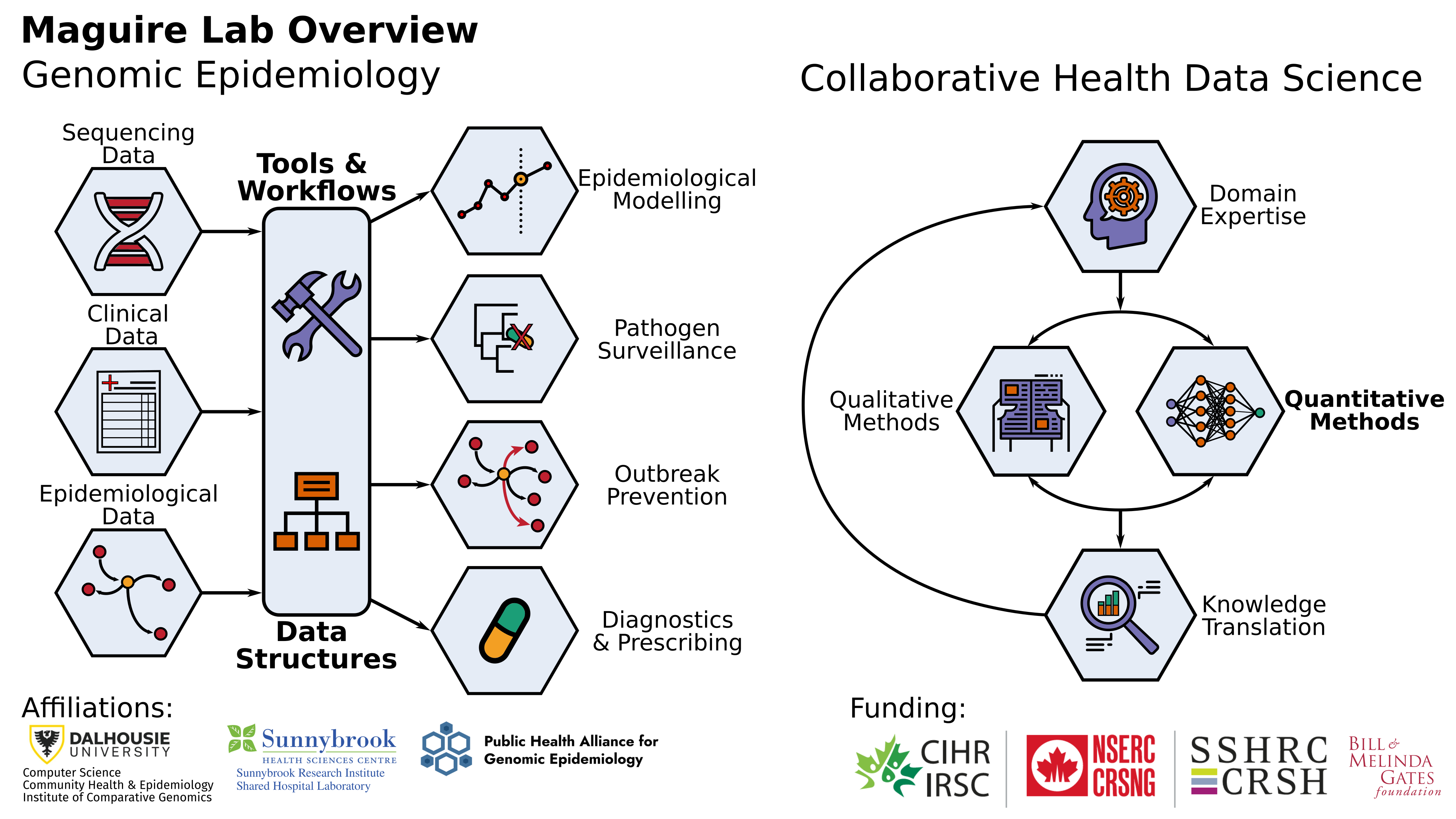Research
Our work revolves around developing new ways to apply data to collaboratively try and solve health and social crises. This involves two main areas: genomic epidemiology of infectious diseases (including microbial bioinformatics more widely) and health data science.

Genomic Epidemiology
Our work in genomic epidemiology is largely focused around working with public health and clinicians to better understand the diagonsis, evolution, and dynamics of infectious diseases. Specifically, we develop and apply microbial bioinformatics and machine learning approaches use genomic/metagenomic data to answer these types of questions.
This work largely focuses on methods to improve surveillance and diagonsis of Antimicrobial Resistance (AMR) in collaboration with the Comprehensive Antibiotic Resistance Database, Public Health Agency of Canada’s National Microbiology Lab, Agriculture and Agri-Food Canada, the Canadian Food Inspection Agency.
As of the start of the COVID-19 pandemic we have been actively involved in the development of viral genomic analysis workflows, quality control metrics, as well as contributions to widely used lineage assignment tools. This has led our group to lead pathogenomic bioinformatics at Toronto’s Shared Hspital Lab (located at Sunnybrook). We also actively contribute to several national and international public health consortia including the Canadian COVID Genomics Network (CanCOGeN) and Public Health Alliance For Genomic Epidemiology (PHA4GE).
Collaborative Data Science
This work involves finding collaborators with expertise in a given applied domain such as Tamara Sorenson-Duncan in language acquisition, Michael Halpin in sociology, and Jocelyn Stairs in refugee women’s health. These experts have data-related problems ranging from a simple need for visualisation/exploratory data analysis to more complex questions requiring careful application of ecological statistics and machine learning methods. Through these collaborations we’ve been involved in identifying and lobbying for improved health provision for refugee women, identifying signatures of online radicalisation, and developing improved understanding of the role of social media in language development.
… and more.
The joy of spending our time coming up with ways to deal with large messy datasets is that it can support working with a broad-range of people across a wide-range of fields. We are always open to collaborating on projects with a clear social or health impact. This extends to work developing research capacity to empower individuals to ask and answer their own research questions. MicroResearch and the Halifax Community Learning Network are great initiatives that we actively support and contribute towards.